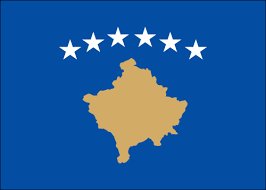Kosovo: Current Developments and Global Significance

Introduction
Kosovo, a small landlocked nation in the Balkans, has been a focal point of geopolitical tensions since declaring independence from Serbia in 2008. This region is significant not only for its ethnic diversity but also for its role in broader European security dynamics. With recent events shaking the delicate political landscape, understanding Kosovo’s current situation is essential for grasping the implications for regional stability and international relations.
Recent Developments
In the past year, Kosovo has witnessed a series of critical developments affecting its relations with Serbia and the European Union. Tensions escalated after local elections in northern Kosovo, where a significant number of ethnic Serbs boycotted the vote, leading to a low turnout and the election of Albanian mayors in predominantly Serb communities. This move was condemned by Serbia and increased ethnic tensions. In response, the EU has called for dialogue between Kosovo and Serbia, emphasizing the need for compromise to foster peace.
Additionally, Kosovo’s aspirations to join international organizations, including the United Nations, have faced obstacles primarily due to lack of recognition from several countries, including Serbia and Russia. The EU’s support has been pivotal, but the road to membership remains fraught with political and diplomatic hurdles. In September 2023, Kosovo’s Prime Minister Albin Kurti called for increased international diplomatic efforts to address these challenges, further highlighting the urgency of the situation.
Challenges Ahead
As Kosovo navigates its path forward, it must contend with internal challenges, including economic development and managing ethnic diversity. Unemployment rates remain high, especially among youth, fueling discontent. Moreover, building trust among different ethnic communities within Kosovo is essential to prevent further conflict and ensure stability.
Conclusion
The situation in Kosovo is evolving, with implications not only for its citizens but also for the Balkans and Europe as a whole. The ongoing negotiations with Serbia and the pursuit of international recognition are critical to Kosovo’s future. As global attention focuses more on this region, understanding the complexities and challenges facing Kosovo becomes crucial for stakeholders involved in peacekeeping and diplomacy. The coming months will be pivotal in determining whether Kosovo can move toward a more stable and prosperous future.









